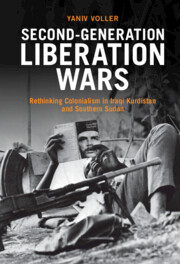Book contents
- Second-Generation Liberation Wars
- Intelligence and National Security in Africa and the Middle East
- Second-Generation Liberation Wars
- Copyright page
- Dedication
- Contents
- Acknowledgements
- Maps
- Abbreviations
- Introduction
- 1 Practices, Roles, Colonialism and Decolonisation
- 2 The Historical and Ideational Context of Postcolonial Liberation Wars
- 3 Postcolonial Governments and Counter-Insurgency
- 4 Second-Generation Liberation Strategies
- 5 Transition in Liberation: From Guerrilla Fighting to State-Building
- Conclusion
- Bibliography
- Index
4 - Second-Generation Liberation Strategies
Published online by Cambridge University Press: 17 February 2022
- Second-Generation Liberation Wars
- Intelligence and National Security in Africa and the Middle East
- Second-Generation Liberation Wars
- Copyright page
- Dedication
- Contents
- Acknowledgements
- Maps
- Abbreviations
- Introduction
- 1 Practices, Roles, Colonialism and Decolonisation
- 2 The Historical and Ideational Context of Postcolonial Liberation Wars
- 3 Postcolonial Governments and Counter-Insurgency
- 4 Second-Generation Liberation Strategies
- 5 Transition in Liberation: From Guerrilla Fighting to State-Building
- Conclusion
- Bibliography
- Index
Summary
As the Iraqi Kurds and Southern Sudanese became disillusioned with their prospects of integrating into the postcolonial states on an equal basis, they began to challenge their governments and seek new solutions, ranging from federalism to secession. This chapter details how these movements developed this anti-colonial identity, and how they used the very ideas, strategies and methods employed by the first-generation liberation movements against them.
Keywords
- Type
- Chapter
- Information
- Second-Generation Liberation WarsRethinking Colonialism in Iraqi Kurdistan and Southern Sudan, pp. 139 - 190Publisher: Cambridge University PressPrint publication year: 2022

